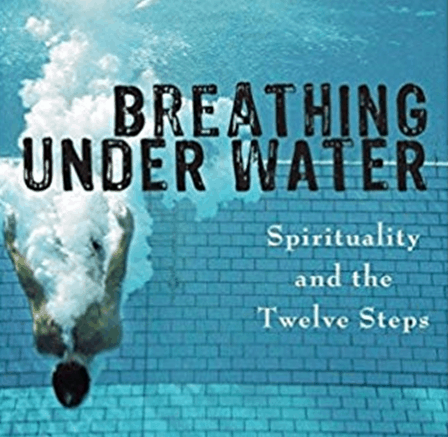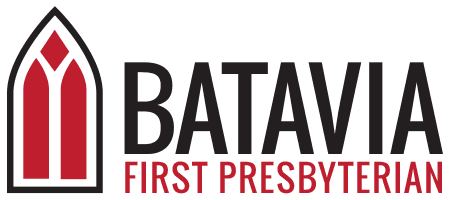SCRIPTURE: Romans 7:15-20
I do not understand my own actions. For I do not do what I want, but I do the very thing I hate. 16 Now if I do what I do not want, I agree that the law is good. 17 But in fact it is no longer I that do it, but sin that dwells within me. 18 For I know that nothing good dwells within me, that is, in my flesh. I can will what is right, but I cannot do it. 19 For I do not do the good I want, but the evil I do not want is what I do. 20 Now if I do what I do not want, it is no longer I that do it, but sin that dwells within me.
NOTES ON THE TEXT:
It is always good to remember that when we read the epistles (letters in the Christian scriptures) that we are reading literature intended for a specific group of people. So knowing some of the context is important to understanding such literature. The letter to the Romans was written by the Apostle Paul to a church that he had never visited before. It is the longest letter written by Paul (as far as the Bible goes) and that is why it is placed first in the Christian scriptures. The intention of the letter is to bring healing to a divided community and to also help set up a post for Paul on his way to Spain. The people Paul was addressing were the Gentiles who were leading the church in Rome at that time (somewhere around the year 55 CE).
In an effort to help the followers of Jesus in Rome to turn their hearts to God’s grace instead of relying on their own will power, Paul admitted to them his own powerlessness and his internal struggles. Even though he had had an incredible experience of transformation on the way to Damascus, he still found himself struggling to live according to the values of the kingdom of God. He was sharing this with them to help them through their difficult time. He knew that they had divisions in their church that mirrored the divisions and prejudices of the culture. The Gentile followers of Jesus had taken over the leadership of the church during the time the Jews were expelled from Rome. When the Jewish believers came back, the Gentile followers of Jesus did not allow them to be in leadership. The Gentile Christians believe that they had replaced the Jewish followers of Jesus because there was no need to be Jewish first to follow Jesus. This is an old story of prejudice which gets repeated in human history many times. The temptation to believe that “we” are better than “them” is always great for us because it makes us feel that we are in control. Paul understood the sway of people’s addiction to power and control and how these things blocked their ability to love and serve God freely. He admitted to them that even though on an intellectual level he knew what was right, he still struggled to put it into practice. In fact, he had found himself many times doing the opposite of what he knew to be right.
Marcus Borg and John Dominic Crossan shed a great light on the writings of Paul in their book The First Paul. Paul was trying to continue the mission of Christ to transform the values of domination and control into God’s ways of compassion and grace. Crossan and Borg write,
The normalcy of this world refers to the most common form of human society since the development of large-scale agriculture and the concentrations of populations it made possible, beginning in the fourth millennium BCE. What emerged is what we and others call in shorthand “domination systems,” societies ruled by a few who used their power, wealth, and “wisdom” to shape the social system in their own self-interest. The few dominated the many -and they achieved their domination through violence and the threat of violence…Paul’s indictment of the wisdom of this world is straightforward: the rulers of this age “crucified the Lord of glory.” The wisdom of this world -its normalcy as domination through violence -stands in opposition to the wisdom of God…Like the story of the exodus, “Christ crucified” and “Jesus is Lord” called people to center their lives in God rather than living under the pharaohs of this world.
So, sin in Paul’s context meant that people had accepted the violence of the systems of the world as normal. They adjusted to that vision of peace through domination and the threat of violence. This manifested itself in the church in Rome through the divisions between Jews and Gentiles.
FOR REFLECTION:
We can relate to Paul’s internal struggles of how we often know that a behavior or a thought process is not healthy and yet we engage it. We also know this when we find ourselves stuck in our fears or resentments while yearning to be free of them. And sometimes we are not even aware of our addictions because they may seem like virtues to us. Our addictions often disguise themselves from us. That is why Jesus said “Why do you see the speck in your neighbor’s eye, but do not notice the log in your own eye? 4 Or how can you say to your neighbor, ‘Let me take the speck out of your eye,’ while the log is in your own eye?” Matthew 7:3-4 “ Without the grace of God, we may not even be truly aware of our real struggles.
The invitation this week is to consider taking the first step toward our healing from the wisdom of the 12 Steps of Alcoholics Anonymous “We admitted we were powerless over alcohol -that our lives had become unmanageable.” Admitting our powerlessness over our addictions is the first and most difficult step of healing. We cannot be transformed and healed if we don’t allow the light of God’s love into our areas of struggle. Yet, we often resist this because it seems like weakness and our world tells us to reject weakness. The example of Jesus shows us the importance of embracing our weakness and powerlessness instead of denying or rejecting it. Richard Rohr writes, “Until you bottom out and come to the limits of your own fuel supply, there is no reason for you to switch to higher octane of fuel. Why would you? You will not learn to actively draw upon a Larger Source until your usual resources are depleted and revealed as inadequate to the task.” Trying to control life or change our addiction often leads us to disappointment and away from God’s grace. Notice how the minute you think you have everything under control, a new challenge arises. Thus, peace always seems illusive in this kind of cycle because we are seeking it in the wrong places.
How do you feel about admitting your powerlessness? Here are some questions for reflection from Richard Rohr’s companion journal to Breathing Under Water.
- How do you feel about being powerless? When have you experienced being powerless in your everyday life? How have you been taught to regard power and powerlessness? Spend some time writing your immediate reactions to the word powerful and powerless.
- When were you surprised by something good coming out of a seeming failure? Think of a time when you got exactly what you thought you wanted and were disappointed. Why do you think that happened? How might it look different now as you look back on it with a different perspective?
- Reflect on a dark or difficult time in your past. How was God present or absent at that time? How does it look now? Write about how the memory of that time might be helpful in future situations.
- How much do you depend on your own strength and abilities to get through everyday struggles? How easy is it for you to ask others for help? When did you last ask God for help? Name at least one area where you feel like you might be reaching “the limits of your own fuel supply.”
- What area of your life do you have a need to control? How hard do you work at maintaining that control? What is it costing you in terms of physical and emotional health? How does your need to control affect your relationships?
- What is your first response to a change in your life? How do you find your way to acceptance? Write about a time when you knew that you needed to make a change but resisted. Write about another time when you found something better. What are you afraid to change right now? How can you take one step forward?
Prayer by Joyce Rupp:
“The One Who Breaks Chains”
I have been bound time and again
by fetters that shackled me tightly
and entangled my heart’s desires.
These countless, vapid excuses of mine
for not being the person I could be
have restrained the love in my heart
intended to flow outward to others.
You continually show me these chains
and help me to break loose, to be free
from whatever chokes my goodness. Amen.


